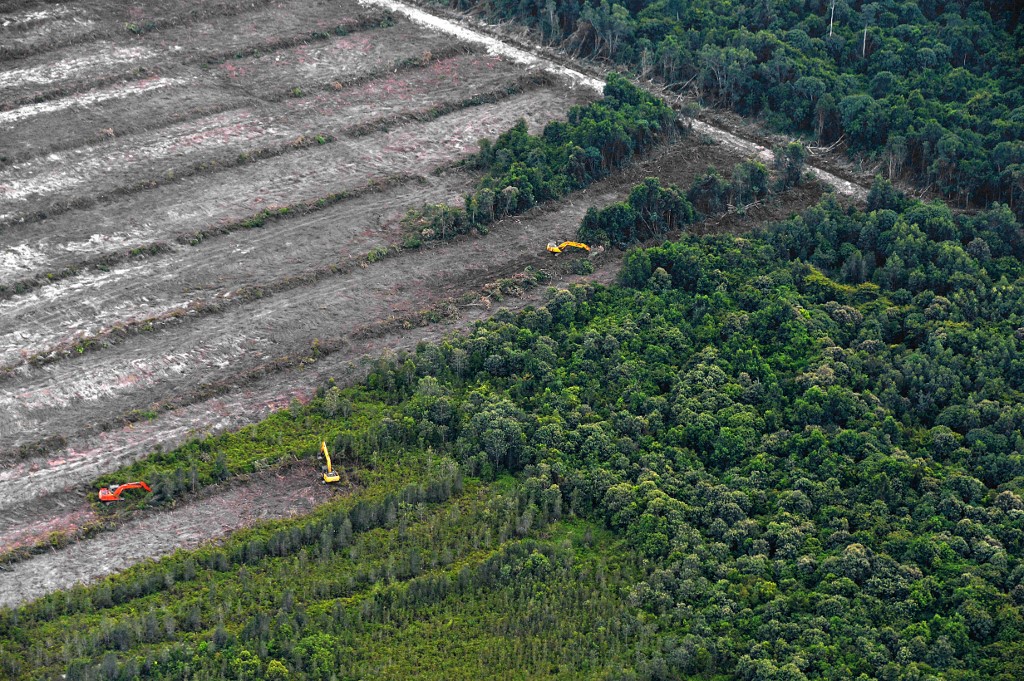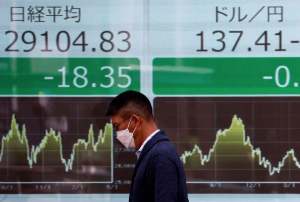Global companies and financial institutions with the highest potential for curbing deforestation are largely failing to do so, according to a report released on Thursday that shows China-based companies fared especially badly.
The Forest 500 analysis by non-profit research group Global Canopy graded 350 companies most responsible for producing, using or trading commodities that drive deforestation, along with the 150 biggest banks, investment firms and pension funds that finance them.
Deforestation – driven by commodity crops such as palm oil and soy, cattle pasture and timber exploitation – is a threat to climate, communities and the diversity of life on Earth.
If tropical deforestation were a country, it would be the third biggest source of CO2 emissions after China and the US, and ahead of the EU and India.
“Halting agriculture-driven deforestation to halve emissions and reverse biodiversity loss by 2030 is not an option but a necessity for companies credibly committed to net zero,” Nigel Topping, former CEO of climate non-profit We Mean Business, said.
Favourable Rankings
Cargill, Colgate-Palmolive, Nestle, Unilever and PepsiCo were among 15 companies sharing a favourable ranking, while about 60 companies – many from China, as well as Brazil and Argentina – had the lowest score possible in the five-tier rating.
Of the companies headquartered in the EU and UK, 85% had a deforestation commitment for at least one of their commodities, while only 23% of those based in China, the largest market for forest-risk commodities, had a deforestation commitment, the group said.
One in three companies assessed had no forest commitments at all, and 72% addressed some but not all of the forest-related commodities in their supply chains.
Even those with commitments keyed to specific commodities – especially soy, beef and leather – “are failing to provide evidence of how they are implementing them”, the report concluded.
“Too few companies recognise the climate risks that are caused by deforestation, with few including their supply chains in their reporting,” Niki Mardas, executive director of Global Canopy, said.
Financial Firms Fall Short
Progress is even more halting among financial firms, which provide more than $5.5 trillion every year to companies in forest-risk supply chains, according to the report.
Some 93 of the 150 institutions analysed did not have a deforestation policy covering investments and lending to companies most reliant on the commodities ravaging forests.
Less than two dozen of the banks or investment firms that do have deforestation policies report on progress made. Among the largest Chinese financial institutions, only Agricultural Bank of China had any commitments.
In Asia, HSBC, Mitsubishi UFJ Financial and Standard Chartered were ranked above other financial institutions, though all were still found wanting.
“The ranking shows that too many companies are ill-prepared for the regulatory changes coming down the track,” the report concluded.
- AFP with additional editing by George Russell
READ MORE:
Indonesia Revokes Thousands of Mining and Forestry Permits
Myanmar Exports Teak to US in Defiance of Sanctions
US, China Sign Deal to Boost Cooperation on Climate Change
WATCH MORE:
























